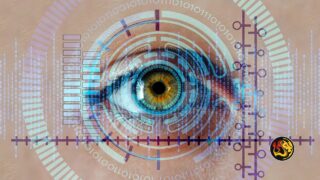
By Stefan J. Bos, Chief International Correspondent Worthy News
TAIPEI (Worthy News) – A Taiwan-based company expects people to soon pay for goods and services through their “facial recognition, fingerprints, eye scans, and handprints.”
Jean-Philippe Niedergang, a regional CEO of global payment industry leader Castles Technology, said using “a totally personal and irreplaceable mechanism, biometric payment will significantly reduce fraud.”
He said payments at “points of sale,” such as in stores and restaurants will “allow for greater efficiency in the automated payment process by reducing waiting times for customers.”
Niedergang noticed that the “use of fingerprints as a means of verification on smartphones has encouraged the development of ‘biometrics,’” referring to human characteristics.
He cited a survey by the Dentsu Data Lab agency conducted in 14 countries in 2021, showing that “81 percent of respondents would be willing to use fingerprints instead of PIN codes.”
A survey conducted by bank card company Visa showed that “79 percent of French people trust biometrics as a secure means of authentication.”
Additionally, the Groupement des cartes bancaires CB, France’s national interbank network, reportedly claimed that 52 percent of French people “prefer to use their fingerprint instead of their PIN code.”
BIOMETRIC CHALLENGES
However, he acknowledged that biometrics still face “cost, security, and data storage” concerns.
“The risk that irreplaceable biometric information could be obtained by hackers raises doubts among consumers,” he admitted.
“The storage of this encrypted information raises questions in the evolution of biometric payments. Who should be responsible for ensuring the security of biometric information, the bank or the payment terminal provider? This issue largely depends on the trust of the users.”
However, despite concerns, he expects the move to pay with face, eyes, and fingers to continue. “The contactless biometric payment card is currently the only biometric payment method on the market.”
However, its “evolution towards other formats such as the pattern of veins on a hand or facial recognition is expected to be the next step,” Niedergang stressed.
“The biometric technology already used in smartphones and its level of acceptance show that the consumer market is ready to engage in this new innovative era in the financial sector.”
Copyright 1999-2026 Worthy News. This article was originally published on Worthy News and was reproduced with permission.
Latest News from Worthy News
The Trump administration has finalized a sweeping reciprocal trade agreement with Taiwan, confirming a 15 percent U.S. tariff rate on Taiwanese imports while securing broad new market access and purchase commitments for American goods.
Democrats are applauding White House border czar Tom Homan’s Thursday announcement that immigration enforcement operation in Minnesota will end next week.
Democrats in the U.S. Senate tanked the Homeland Security full-year funding bill in a last-ditch vote Thursday, all but guaranteeing a partial government shutdown starting Saturday.
Mourners in a remote Canadian town grappled Thursday with the aftermath of one of the country’s deadliest school shootings in decades, as families, survivors and leaders reacted to the tragedy that left eight victims — most of them children — dead, along with the 18-year-old suspect.
A gunman who opened fire at a school in southern Thailand’s Hat Yai city on Wednesday wounded a teacher and a student before being detained, authorities said, in a rare attack that sent students and staff into panic.
The Republican-led House of Representatives has passed the Safeguard American Voter Eligibility (SAVE) America Act, advancing legislation that would require proof of citizenship to register to vote and photo identification at the polls. The bill now heads to the Senate, where its future remains uncertain amid strong Democratic opposition.
Israel’s Ministry of Defense announced on Wednesday that its advanced David’s Sling air and missile defense system has completed a series of complex modernized tests, a development officials say bolsters the country’s defensive posture as tensions with Iran escalate and the United States prepares military options that could include direct strikes.







